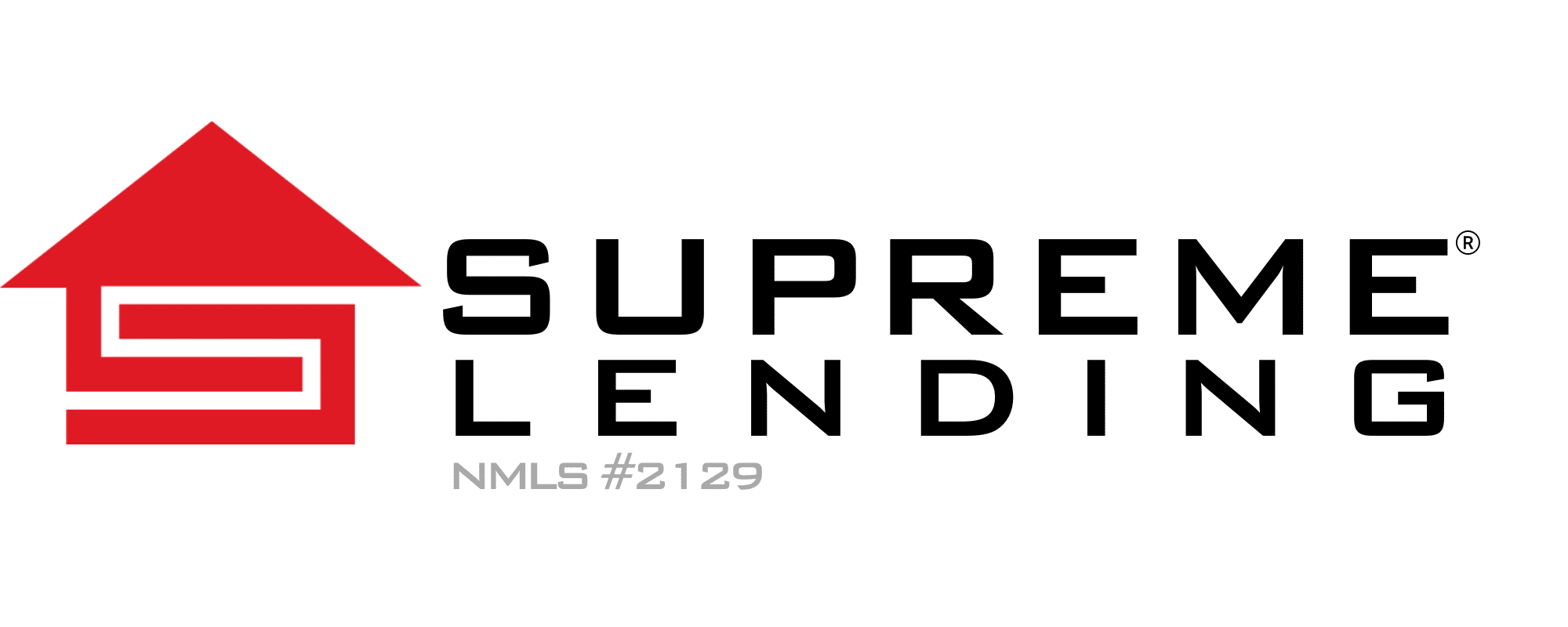
Conventional Loans Vs. FHA Loans
Purchasing a home is a significant milestone in everyone’s life, yet it can also be daunting. Navigating the complex landscape of comparing home loans often feels like an overwhelming labyrinth of options and choices.
In the sea of mortgage financing, two prominent types stand out: conventional and Federal Housing Administration (FHA) loans. So, let’s dive deep and compare loans to give you a clear perspective and equip you with the knowledge to make an informed decision.
With a clear understanding of Conventional and FHA loans, their differences, and the right choice for you, you can turn this complex process into a simple and confident decision. If you’re in a hurry, reach out to the Supreme Lending – DFW experts who can guide you through the nuances of each loan type and find the best fit for you.
Let’s set sail to demystify these home loan options.
Conventional loans Vs. FHA loans
Conventional loans are mortgage loans offered by private lenders without any government insurance. They are a popular choice for borrowers with good credit scores and substantial down payments.
On the other hand, FHA loans, backed by the Federal Housing Administration, allow lower credit scores and down payments, making them more accessible to first-time homebuyers, as described in this article about buying a house with an FHA loan.
Understanding the differences between these two loan types is vital to making the right decision, as it directly affects your financial future.
Comparing conventional and FHA loans
Let’s compare the various Conventional and FHA loan types in Texas to better equip you for your home-purchasing journey.
Credit score requirements
When securing a home loan, your credit score is one of the pivotal elements in the approval process. Lenders use this three-digit number to measure your creditworthiness and financial reliability. Two popular home loan options, Conventional Loans, and FHA Loans, come with varying credit score requirements that you need to meet to qualify.
Conventional Loans, backed by Fannie Mae or Freddie Mac, usually require a higher credit score. As of 2023, the minimum credit score for a conventional loan is typically 620. However, to get the best possible interest rates and loan terms, lenders often prefer a credit score of 740 or above. This high threshold stems from the fact that Conventional Loans aren’t insured or guaranteed by the federal government. Thus, lenders may perceive them as more risky. A higher credit score signifies a lower risk, which can lead to better loan conditions.
On the other hand, FHA Loans, insured by the Federal Housing Administration, are more forgiving regarding credit score requirements. These loans were created to help individuals with lower credit scores achieve homeownership. The minimum credit score required for an FHA loan can be as low as 500 with a 10% down payment. However, most lenders prefer a minimum credit score of 580, allowing borrowers to take advantage of the low 3.5% down payment option.
While these are the baseline credit score requirements, it’s important to note that the higher your credit score, the better the loan terms and interest rates you can qualify for. This applies to both Conventional and FHA loans. A higher credit score not only increases your chances of loan approval but can also translate to lower interest rates, smaller monthly payments, and potentially saving thousands over the life of your loan.
So, if you’re planning to apply for a home loan, take steps to improve your credit score. This could involve paying your bills on time, reducing your outstanding debt, or rectifying any errors on your credit report.
If you need clarification on your credit score or how to improve it, feel free to reach out to Supreme Lending DFW. Our team of experts is ready to assist you in understanding your credit score and advising on ways to improve it, ensuring you can secure the best possible home loan to suit your needs.
Conventional and FHA Down payments
As a rule of thumb, conventional Loans often require a higher down payment than their FHA counterparts. The standard requirement is 20% of the home’s purchase price. However, it’s worth noting that many lenders offer options with as low as 3% down for qualified first-time homebuyers or those who haven’t owned a home in the past three years.
A larger down payment in the context of Conventional Loans does have its merits. It eliminates the need for Private Mortgage Insurance (PMI), an additional cost that protects the lender if you default on your loan. Furthermore, a more significant down payment reduces your loan-to-value ratio, which means you borrow less, leading to lower monthly payments and potentially better interest rates.
On the flip side, FHA Loans are more lenient and aim to provide a gateway to homeownership for those who cannot afford a substantial down payment. If your credit score is 580 or above, you can qualify for an FHA Loan with a down payment as low as 3.5% of the purchase price. Even if your credit score falls between 500 and 579, you can still qualify for an FHA loan, although you’ll be required to put down 10%.
However, one of the trade-offs of making a lower down payment on an FHA Loan is the mandatory requirement of Mortgage Insurance Premium (MIP), irrespective of the amount of down payment. This insurance cost gets added to your monthly mortgage payment and stays for the life of the loan if you put down less than 10%.
When planning your homeownership journey, it’s essential to consider the immediate costs and the long-term financial implications of your down payment decision. Remember, the right down payment choice should align with your current financial condition and future financial goals.
To help you navigate this crucial aspect of home buying, Supreme Lending DFW offers a handy down payment calculator. This tool can assist you in estimating the down payment you’d need based on various factors, including the type of loan, purchase price, and credit score.
Mortgage Insurance
Both Conventional and FHA Loans require mortgage insurance if your down payment is less than 20% of the home’s purchase price. However, the specifics of these requirements vary between the two types of loans.
For Conventional Loans, mortgage insurance is known as Private Mortgage Insurance (PMI). The cost of PMI is usually between 0.5% and 1% of the entire loan amount annually, and it’s paid in monthly installments alongside your mortgage payment. The good news? Once you’ve built 20% equity in your home, either through mortgage payments or appreciation, you can request to have the PMI removed.
On the other hand, FHA Loans require a Mortgage Insurance Premium (MIP). The MIP involves an upfront payment of 1.75% of the loan amount, which can be rolled into the loan, and an annual MIP that ranges from 0.45% to 1.05% of the loan amount, depending on the term and loan-to-value ratio. This premium is divided into 12 monthly payments and added to your mortgage payment. Notably, MIP is required for the life of an FHA loan if you make a down payment of less than 10%.
PMI and MIP serve the same purpose – to protect the lender in case of loan default. As a home buyer, it’s essential to factor in these costs when calculating your potential monthly payments and the overall affordability of the loan.
Debt-to-income ratio (DTI) requirements
Your Debt-to-Income (DTI) ratio, the percentage of your gross monthly income that goes towards paying off debts, plays a crucial role in the loan approval process. Lenders consider DTI a clear indicator of your ability to manage monthly payments and repay borrowed money. Conventional and FHA Loans have specific DTI requirements that potential homeowners must meet.
For Conventional Loans, the preferred DTI ratio is typically 36% or lower, although it may stretch up to 45% or even 50% for borrowers with exceptional credit or those with substantial savings.
FHA Loans are a bit more lenient, generally accepting DTI ratios as high as 43%. Sometimes, borrowers with a strong credit history or significant savings might be approved with a DTI ratio of up to 50%.
However, it’s important to remember that a lower DTI ratio can increase your chances of loan approval and help secure better loan terms and interest rates. A lower DTI ratio signals a healthier balance between your income and debt, implying less risk for the lender.
To help you gauge your DTI ratio, Supreme Lending DFW offers a handy calculator. This tool can give you a clear picture of your current DTI ratio and its potential impact on your loan affordability. Suppose your DTI ratio is higher than recommended. In that case, our team of experts can provide valuable advice on how to lower it, boosting your chances of loan approval and more favorable terms.
Texas FHA and conventional loan limits 2023
Loan limits dictate the maximum amount you can borrow. In Texas, for 2023, the conventional loan limit is $647,200, while the FHA loan limit is $420,680. These limits can influence your borrowing capacity, particularly if you are considering a high-value property.
| Conventional Loan | FHA Loan | |
|---|---|---|
| Credit Score | 620+ | 500+ |
| Down Payments | 5% - 20% | As low as 3.5% |
| Mortgage Insurance | PMI if down payment < 20% | MIP required |
| DTI Ratios | Below 43% | Up to 57% |
| Loan Limits | $647,200 | $420,680 |
Waiting periods for FHA and conventional loans
After financial hardships such as bankruptcy or foreclosure, specific waiting periods exist to qualify for a new mortgage. Conventional loans typically have a more extended waiting period than FHA loans, potentially influencing your eligibility.
Conventional appraisals and FHA appraisals
The appraisal process for Conventional and FHA Loans is integral to your home-buying journey. A home appraisal not only determines the market value of the property you’re interested in but also profoundly impacts the final approval of your loan application. The underlying principle for both loan types is to ensure that the loan amount is not more than the home’s worth. However, the specifics of the appraisal process can vary.
For Conventional Loans, the appraisal process is more focused on the property’s estimated value. An independent appraiser assesses the home’s condition, size, location, and compares it with similar properties recently sold in the area. The outcome of this assessment forms the basis for the loan amount the lender is willing to provide.
On the other hand, FHA appraisals are more thorough, going beyond just estimating the home’s value. FHA-approved appraisers are tasked with determining the home’s market value and ensuring that the property meets the Department of Housing and Urban Development (HUD) minimum property standards. These standards focus on the home’s safety, security, and structural integrity. So, an FHA appraisal also serves as a basic inspection. If the house fails to meet these standards, the issues must be resolved before the FHA loan can be approved.
Regardless of the loan type you opt for, it’s critical to remember that an appraisal protects you, the buyer, and the lender. It prevents you from overpaying for a property and keeps the lender from providing a loan amount that exceeds the home’s worth.
Home loan application process
Understanding the steps involved in the loan application process can help streamline your home-buying journey. Supreme Lending DFW can guide you through the entire process, whether applying for a conventional loan or navigating the nuances of FHA loan applications and refinancing.
Comparing loans involves considering various factors, including credit score, down payment, DTI ratios, loan limits, and financial situation. It’s crucial to consider your individual circumstances and consult professionals like Supreme Lending – DFW, who can provide personalized guidance based on their vast experience and satisfied customer reviews.
Remember, the key to a successful home-buying journey is informed decision-making, and we’re here to help you unlock the door to your new home. Happy house hunting!
Discover Our Programs and Processes




